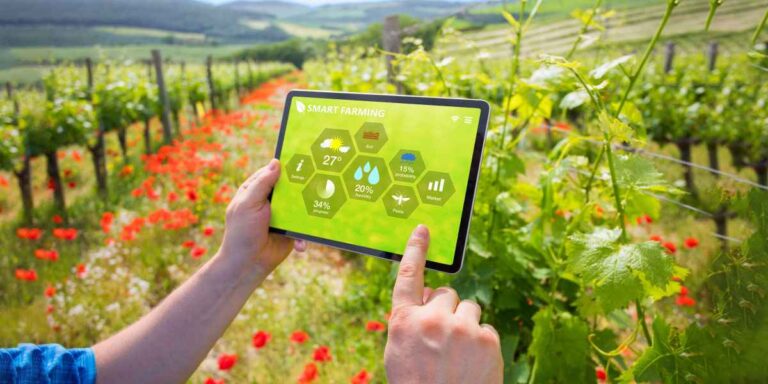In a country where agriculture is more than just a livelihood—it’s a way of life—India is witnessing a transformative shift driven by agritech innovations. As farmers face the twin challenges of climate change and a burgeoning population, technology is stepping in to redefine traditional practices. From smart sensors and drones to mobile apps and sustainable farming methods, these innovations are not just tools; they are lifelines that empower farmers to increase productivity while promoting environmental stewardship. Join us as we explore the cutting-edge technologies that are reshaping the landscape of Indian agriculture and paving the way for a more sustainable and resilient future.
Cultivating a New Era in Agriculture
India has long been known as an agricultural powerhouse, but as the world faces pressing challenges like climate change and food security, the need for innovation in farming practices has never been more critical. Enter agritech—an exciting fusion of agriculture and technology that’s revolutionizing how farmers grow crops, manage resources, and increase productivity. From drone technology to AI-driven analytics, agritech innovations are helping Indian farmers adapt to modern challenges while enhancing the quality and quantity of their produce.
Precision Farming: A Smart Approach
One of the most promising developments in agritech is precision farming. This technique involves using data and technology to optimize field-level management regarding crop farming. Farmers can now use GPS and IoT devices to monitor soil health, moisture levels, and crop growth in real-time. With tools like soil sensors and weather stations, farmers can make informed decisions about irrigation, fertilization, and pest control, ultimately maximizing yields while minimizing waste.
For instance, startups like AgNext are using AI to analyze soil quality and predict crop performance. By providing farmers with actionable insights, these technologies empower them to use resources more efficiently, leading to better harvests and sustainable practices.
Drones: Eyes in the Sky
Drones have become a game-changer in the agricultural sector. With their ability to cover large areas quickly, they offer a bird’s-eye view of farms that was previously impossible. Farmers can use drones for various purposes, from monitoring crop health to surveying fields for pests and diseases.
Companies like Skymet are leveraging drone technology for crop monitoring and weather prediction. These aerial insights allow farmers to address problems before they escalate, ensuring healthier crops and better yields. Plus, drones help reduce the time and labor costs associated with traditional field surveys.
Sustainable Farming: Tech Meets Eco-Friendliness
Sustainability is at the forefront of many agritech innovations. Technologies like vertical farming and hydroponics are gaining traction as farmers look for ways to produce food in a more eco-friendly manner. These methods allow for growing crops without soil and using significantly less water compared to traditional farming.
Urban farms, such as those created by companies like UrbanKisaan, are utilizing hydroponic systems to grow fresh vegetables in city spaces. This not only reduces the carbon footprint associated with transporting produce but also ensures that cities have access to fresh, healthy food.
Mobile Apps: Empowering Farmers
Mobile technology is another vital player in the agritech revolution. With the widespread use of smartphones, farmers can now access information and resources at their fingertips. Mobile apps provide weather forecasts, market prices, and agricultural tips, helping farmers make informed decisions.
Apps like Kisan Network are bridging the gap between farmers and markets, enabling them to sell their produce directly to consumers. This not only increases farmers’ profit margins but also fosters a more transparent supply chain.
The Future is Bright
As we look to the future, the potential for agritech in India is immense. The government is increasingly recognizing the importance of these innovations, with policies aimed at supporting research and development in agricultural technologies. Initiatives like the Digital India program are paving the way for farmers to adopt new technologies, ensuring that they are well-equipped to meet the challenges ahead.
Moreover, as consumer demand for organic and locally sourced produce rises, agritech innovations will play a crucial role in transforming traditional farming practices. By embracing technology, Indian farmers can not only enhance their productivity but also contribute to a more sustainable and resilient agricultural ecosystem.
Conclusion
The agritech revolution is here, and it’s transforming Indian farming for the better. With innovations in precision farming, drone technology, sustainable practices, and mobile applications, farmers are gaining the tools they need to thrive in a changing world. As we cultivate this new era in agriculture, we can look forward to a future where food production is efficient, sustainable, and capable of feeding the growing population of India.



